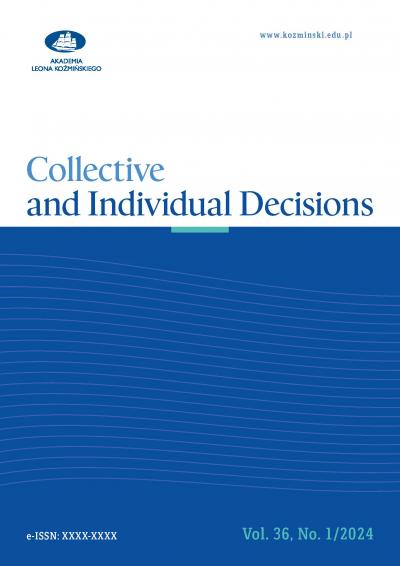Strzał w stopę. Niezamierzone konsekwencje polityczne manipulacji wyborczej w tureckich wyborach parlamentarnych w 2018 roku
Uğurcan Evci
University of California
Marek Kaminski
University of California
12/2020 2020 (34) Decyzje
DOI 10.7206/DEC.1733-0092.146








